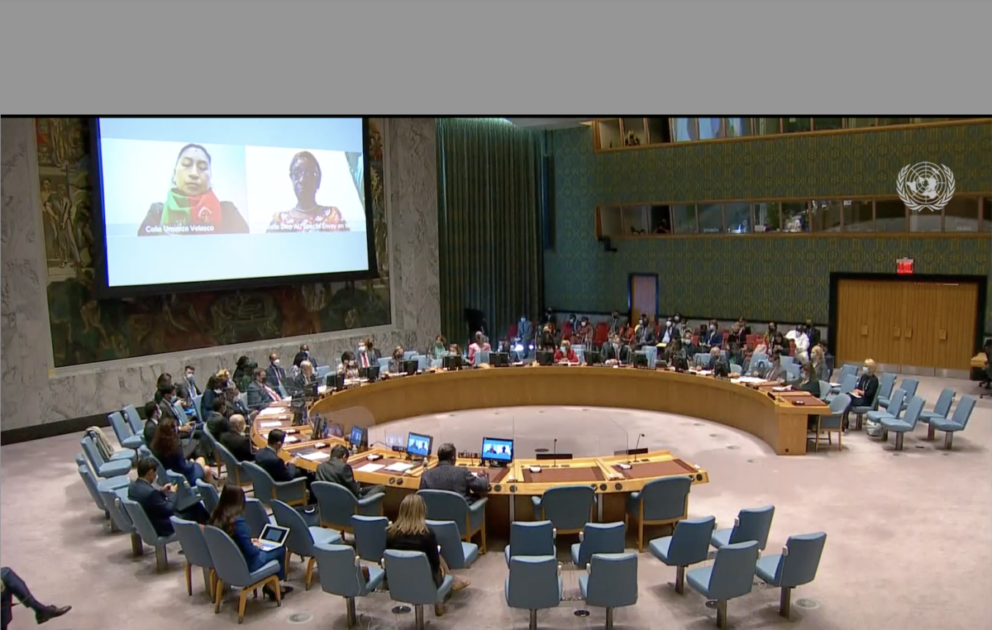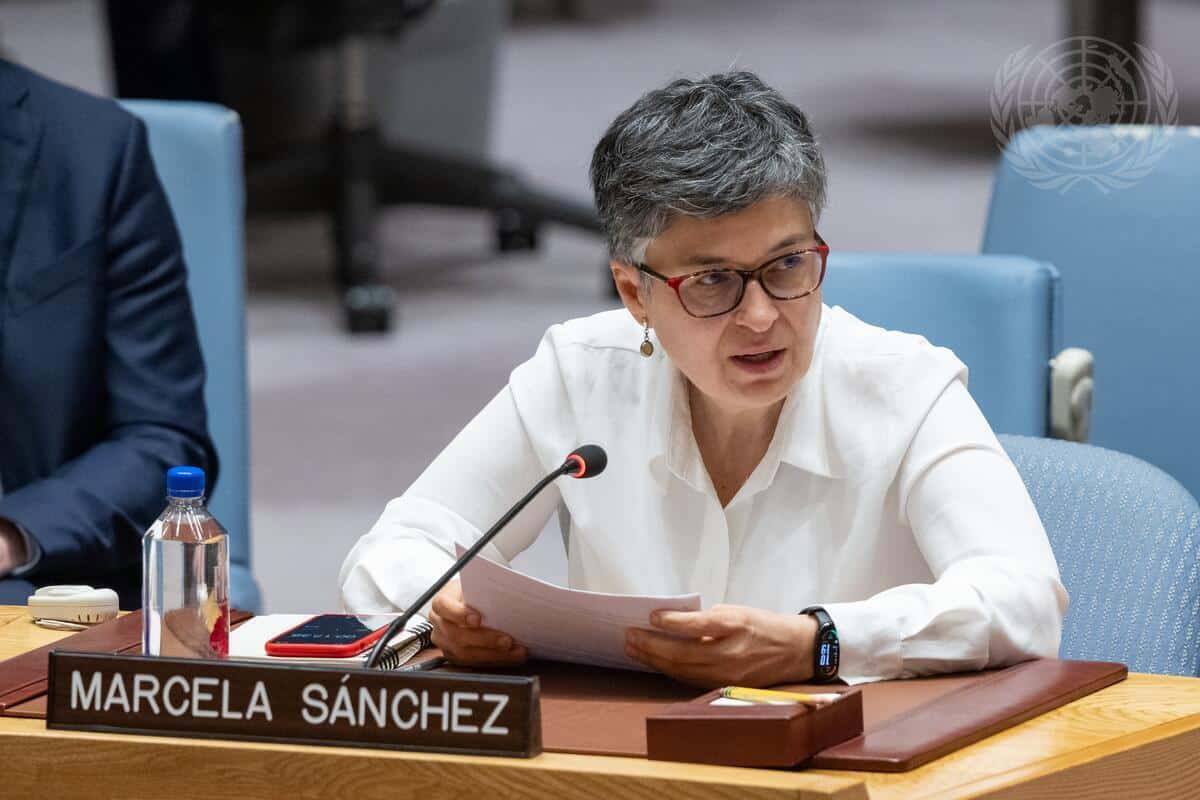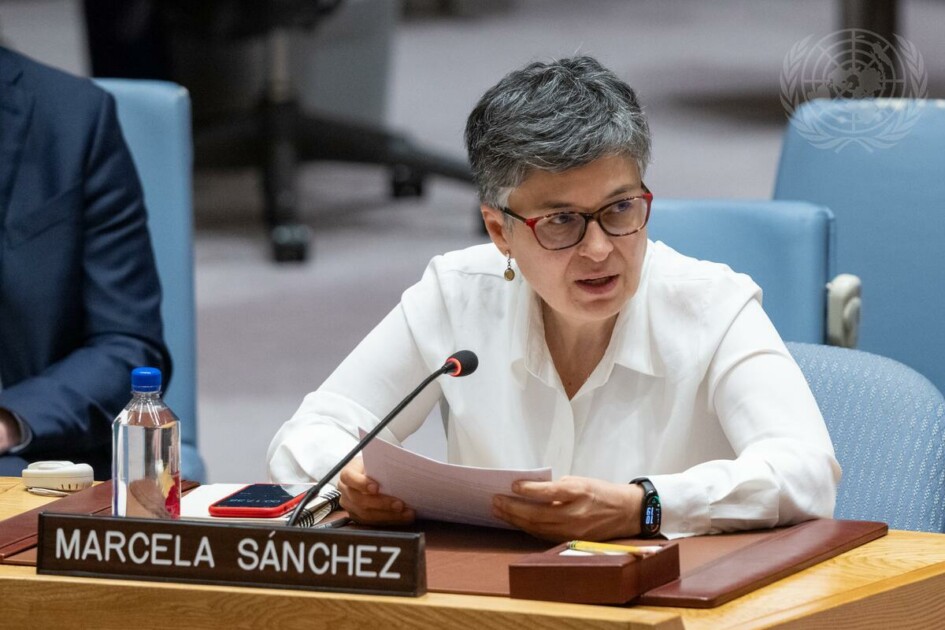Colombia
Colombia
Current and Past Recommendations to the UN Security Council (Monthly Action Points)
As the Council discusses the situation in Colombia, the Council must ensure that the UN Mission in Colombia fulfills its coordination functions within the Monitoring and Verification Mechanism (MVM) with a gender perspective. Women’s rights must be a crosscutting issue in the implementation of the operation of the mission as well as in the tripartite MVM. Throughout the work of the mission including in the implementation and monitoring of the ceasefire, in the context of demobilization and with final peace agreement, there should also be ongoing and consistent consultation with national and local based women’s civil society organizations, including Afro-Colombian, indigenous and rural women’s organizations. The mandate should emphasize the importance of women’s empowerment and agency, as recent reporting has only made reference to SGBV and the previous mandate (SCR 2261 (2016)) did not include any element of the women, peace and security agenda. There should be an effort to support and strengthen all previous efforts by all parties to foster an inclusive peace process, and the mission should continue to work closely with gender experts to prevent sexual and gender-based violence during operations. The Council should consider the following:
- The importance of ensuring that justice institutions are accessible and accountable to all survivors of violence in both rural and urban areas, including in the 20 Transitional Local Zones for Normalization (TLZN) and the 8 Transitional Local Points for Normalization (TLPN).
- In consultation with women, indigenous and Afro-Colombian groups at national, regional, and local levels, the mission should establish readily accessible protection and reporting mechanisms to ensure there is transparency and accountability in the implementation of the ceasefire and final peace agreement, as well as opportunities to report instances of noncompliance, particularly in the context of demobilization.
- In its support for disarmament, demobilization and reintegration, attention must be paid to tailoring assistance to the particular needs of female ex-combatants, as well as women and girls from communities where former fighters resettle.
- In reconciliation and peacebuilding efforts, the needs and rights of women and girls must be at the forefront of the design and implementation of early-warning and ceasefire monitoring mechanisms (SCR 2261 (2016), OP 3).
- The MVM should also monitor, investigate and report on the human rights situation, and consistently consult with women’s civil society organizations in the assessment of incidents and issuing of recommendations to avoid recurrence of incidents.
- The mission should provide technical assistance to the government for the effective implementation and maintenance of protection measures, particularly the National Commission on Security Guarantees for women human rights defenders, and expand emergency relocation funds to include family members and dependents of those at risk of violence.
- Ensure the full and meaningful participation of women’s civil society organizations, including Afro-Colombian, indigenous and rural women’s organizations in the forthcoming peace negotiations with the National Liberation Army (ELN).
As the Council discusses the situation in Colombia, the Council must ensure that the UN Mission in Colombia fulfills its coordination functions within the Monitoring and Verification Mechanism (MVM) with a gender perspective. Women’s rights must be a crosscutting issue in the implementation of the operation of the mission as well as in the tripartite MVM. Throughout the work of the mission including in the implementation and monitoring of the ceasefire, in the context of demobilization and with final peace agreement, there should also be ongoing and consistent consultation with national and local based women’s civil society organizations, including Afro-Colombian, indigenous and rural women’s organizations. The mandate should emphasize the importance of women’s empowerment and agency, as recent reporting has only made reference to SGBV and the previous mandate (SCR 2261 (2016)) did not include any element of the women, peace and security agenda. There should be an effort to support and strengthen all previous efforts by all parties to foster an inclusive peace process, and the mission should continue to work closely with gender experts to prevent sexual and gender-based violence during operations. The Council should consider the following:
- The importance of ensuring that justice institutions are accessible and accountable to all survivors of violence in both rural and urban areas, including in the 20 Transitional Local Zones for Normalization (TLZN) and the 8 Transitional Local Points for Normalization (TLPN).
- In consultation with women, indigenous and Afro-Colombian groups at national, regional, and local levels, the mission should establish readily accessible protection and reporting mechanisms to ensure there is transparency and accountability in the implementation of the ceasefire and final peace agreement, as well as opportunities to report instances of noncompliance, particularly in the context of demobilization.
- In its support for disarmament, demobilization and reintegration, attention must be paid to tailoring assistance to the particular needs of female ex-combatants, as well as women and girls from communities where former fighters resettle.
- In reconciliation and peacebuilding efforts, the needs and rights of women and girls must be at the forefront of the design and implementation of early-warning and ceasefire monitoring mechanisms (SCR 2261 (2016), OP 3).
- The MVM should also monitor, investigate and report on the human rights situation, and consistently consult with women’s civil society organizations in the assessment of incidents and issuing of recommendations to avoid recurrence of incidents.
- The mission should provide technical assistance to the government for the effective implementation and maintenance of protection measures, particularly the National Commission on Security Guarantees for women human rights defenders, and expand emergency relocation funds to include family members and dependents of those at risk of violence.
- Ensure the full and meaningful participation of women’s civil society organizations, including Afro-Colombian, indigenous and rural women’s organizations in the forthcoming peace negotiations with the National Liberation Army (ELN).
Relevant Resources








